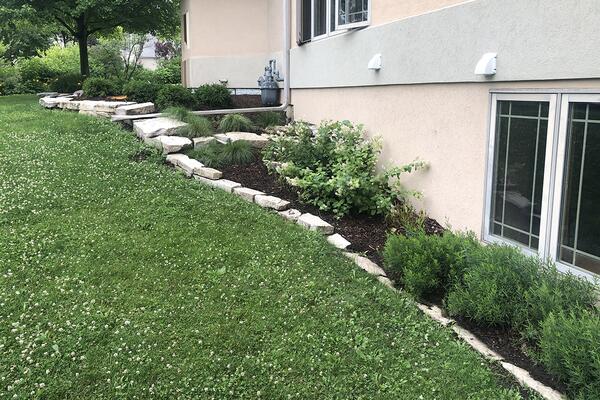Key Takeaways
- Adopt sustainable lawn care practices to improve yard health and environmental impact.
- Regular maintenance, proper watering, and organic treatments are essential for eco-friendly lawn care.
- Learn how to incorporate native plants and biodiversity into your yard.
Why Choose Eco-Friendly Lawn Care?
Switching to eco-friendly lawn care methods can significantly benefit your yard and the environment. Not only will your lawn look lush and healthy, but you’ll also reduce your carbon footprint. Using sustainable practices helps conserve water, reduces chemical use, and encourages biodiversity. For residents or businesses looking for specific solutions, Newington lawn care services offer tailored approaches to maintaining a green, eco-friendly yard. Embracing eco-friendly lawn care is not just about aesthetics; it’s a conscious choice to support environmental sustainability and create a safe, toxin-free outdoor space for families and pets.
Lawn care in Newington is a vital service for homeowners seeking to maintain beautiful and healthy outdoor spaces throughout the seasons. Local lawn care companies give complete solutions catered to the unique soil and climate of the area, from routine mowing and trimming to specialist treatments for weed control and fertilization. With an emphasis on improving curb appeal and encouraging environmental sustainability, these services make sure that Newington homes have lush, green lawns that make their owners proud.
Regular Maintenance Is Key
Consistent maintenance is crucial for a healthy lawn. Regular mowing, trimming, and aerating are fundamental tasks that should not be overlooked. Mowing your grass to the appropriate height—usually around three inches—ensures that the grass remains dense and more drought-resistant, competing effectively against weeds. According to the Environmental Protection Agency, properly maintained grass is better at conserving water and nutrients. Additionally, consistent maintenance can prevent issues like pest infestations and diseases, which are easier and cheaper to deal with when caught early.
Watering Wisely
Effective watering practices are essential for eco-friendly lawn care. One of the most common mistakes is watering too often but too shallowly. This approach encourages weak roots that can’t withstand drought or compete with weeds. Instead, opt for deep and infrequent watering sessions to stimulate deeper root growth. This practice makes your lawn more resilient. According to experts, the best time to water is early in the morning when evaporation rates are low, ensuring that more water penetrates the soil. To collect and preserve rainwater, think about utilizing rain barrels. This will lower your water expenses and increase the sustainability of your garden.
Using Organic Treatments
Organic fertilizers and pest control methods can significantly reduce the impact on the environment. These alternatives are safer for the soil and the family and pets using the yard. Compost, for example, is an excellent organic fertilizer that nourishes your soil, making it richer and more capable of supporting plant life. According to National Geographic, composting can also reduce the amount of waste that ends up in landfills. Furthermore, natural pest control methods like neem oil and diatomaceous earth, as well as introducing beneficial insects, can effectively manage pests without harming beneficial organisms or contaminating the soil.
Incorporate Native Plants
Introducing native plants into your yard can enhance biodiversity and require less maintenance than non-native species. Because native plants are acclimated to their particular habitat, they typically use less water and exhibit greater resistance to pests and illnesses. They are a great option for anyone wishing to use environmentally friendly lawn care techniques because of these two advantages. Additionally drawing in nearby fauna like birds and helpful insects, native plants enhance the health and sustainability of the environment in your garden.
Encourage Beneficial Insects
Not every bug poses a threat to your grass. Predatory beetles, ladybugs, and bees are examples of beneficial insects that are essential to the health of your yard. These insects help control the population of harmful pests, reducing the need for chemical pesticides. Planting a range of flowering plants that offer nectar and pollen can help to promote a habitat for these useful insects. Not only can these flowers add beauty to your yard, but they also provide food for bees and other pollinators. Encouraging beneficial insects creates a self-sustaining environment that supports your lawn’s health and biodiversity.
Composting and Mulching
Using compost and mulch in your garden beds and lawn can help retain moisture and improve soil health. As a naturally occurring fertilizer, compost enriches the soil with vital nutrients that support strong plant growth. Mulch, on the other hand, helps retain soil moisture, controls weeds, and regulates soil temperature. This reduces the need for chemical fertilizers and keeps your plants happy and thriving throughout the growing season. Organic mulches like straw, wood chips, and shredded leaves are particularly beneficial as they break down over time, further enriching the soil.
Final Thoughts
Eco-friendly lawn care is a practical approach to achieving a healthy, vibrant yard while reducing your environmental impact. By adopting sustainable practices such as regular maintenance, proper watering, organic treatments, and incorporating native plants, you can create a beautiful and eco-friendly lawn. These methods benefit the environment and contribute to the overall well-being of those who enjoy your outdoor space. Start implementing these tips today for a greener tomorrow and experience the satisfaction of knowing you’re doing your part to protect the planet.
Environmentally conscious lawn care is a practical approach to achieving a healthy, vibrant yard while reducing your environmental impact. By adopting sustainable practices such as regular maintenance, proper watering, organic treatments, and incorporating native plants, you can create a lawn that is both beautiful and eco-friendly. These methods benefit the environment and contribute to the overall well-being of those who enjoy your outdoor space. Implementing these tips can reduce water consumption, minimize chemical runoff into waterways, and increase habitat for beneficial insects and wildlife. Start implementing these tips today for a greener tomorrow and experience the satisfaction of knowing you’re doing your part to protect the planet and create a sustainable environment for future generations.







